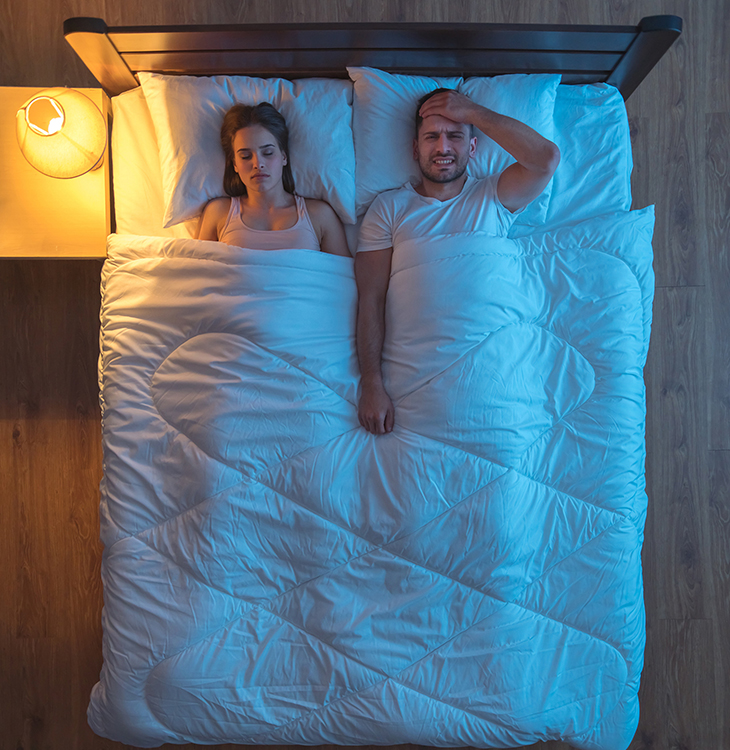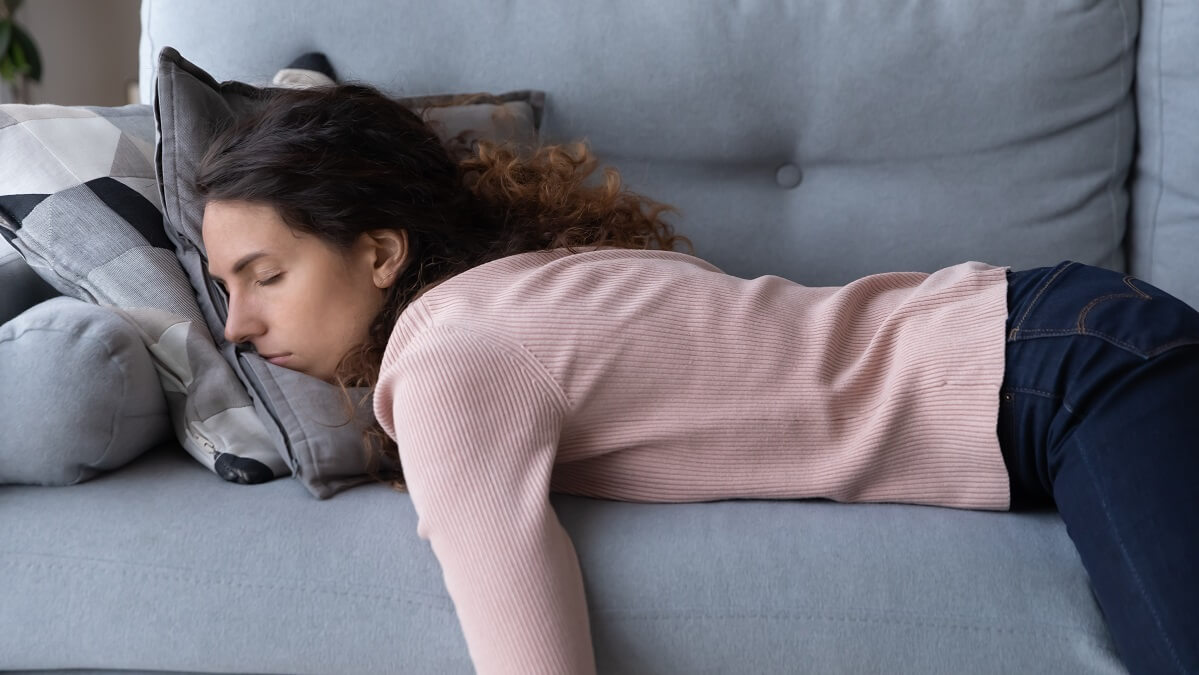You may have heard that adults need between seven and nine hours of sleep each night. But the quality of sleep you get also matters.
While you rest, your body goes through different stages of the sleep cycle. Deep sleep, for example, is the stage of sleep you need to feel refreshed when you wake up in the morning. Unlike rapid eye movement (REM) sleep, deep sleep is when your body and brain waves slow down.
Deep sleep is characterised by slow electrical activity largely in the frontal lobes of the brain and is also referred to as slow-wave sleep. Deep sleep occurs more in the first third of the night and is the most difficult stage to wake up from, and if you do you may feel particularly groggy.
But does the breakdown of your sleep really matter? And is it possible to increase the amount of deep sleep you get?
Here, experts explain everything you need to know.
What are the different stages of sleep?
“There are various ways to describe the stages of sleep but essentially we have four which go from light to deep, physically restorative sleep, and then REM sleep,” says sleep psychologist Stephanie Romiszewski. “REM sleep is a very active sleep where we have most of our dreams.”
We go through these cycles at various times during the night, each usually lasting around 90 minutes, but the percentage of each stage changes depending on whether you’re at the beginning or the end of your sleep. “This means that no area of your sleep is more important than the other,” Ms Romiszewski says.
How much deep sleep should you get on average?

“Technically, sleep specialists agree that for adults, the range of 6.68 to 10 hours of sleep per night is the optimum amount,” says Dr Lourdes DelRosso from the World Sleep Society. “Deep sleep is on average 20 per cent of the total sleep at night.”
Doing the maths, that 20 per cent average of a total night’s rest works out at between 80 and 120 minutes of deep sleep per night.
What happens if you don’t get enough deep sleep?
“Deep sleep is where we experience cell restoration, growth hormones, cytokine production (for your immune response), muscle repair and hormone regulation,” says Ms Romiszewski. “You’re more likely to get sick, feel depressed and gain weight when deep sleep is impaired.”
Plus, if you aren’t getting enough deep sleep, this, in turn, means that you’re not getting enough sleep within the different stages.
Dr DelRosso says: “There are many symptoms and potential health impacts if healthy sleep is not achieved. Stretching one poor night into chronic sleep loss can lead to irritability, mood swings, and several mental disorders such as depression.
“Because sleep deprivation shortens telomere length in DNA, which facilitates chaotic cellular growth, it can increase the risk of various forms of cancer.”
I’ve noticed that sometimes the longer I sleep in total, the less deep sleep I get, whereas if I sleep less, I sometimes get more deep sleep. Why might that be?
“There is a misconception about sleep depth,” Dr DelRosso says. “Short naps usually do not allow us to go into deep sleep, so when we wake we do not feel sleepy. Longer naps go into deep sleep and when we wake up, we usually feel sleepy because our brain was in a cycle of deep sleep.
“It also depends on other factors. How much sleep you had before and whether or not you have a sleep disorder. Many, many factors affect sleep.”
Ms Romiszewski advises caution when using sleep tracking devices and apps, saying: “I see many people experience sleep problems from the anxiety the trackers cause themselves. They put unnecessary pressure on themselves to make sure they’re getting enough sleep per night as per the recommendation from the tracker, which isn’t always accurate.”
What can people do to try to increase the amount of deep sleep they get?
“I wouldn’t focus too much on the amount of deep sleep you’re currently having per night as this can’t be controlled,” Ms Romiszewski says. “I would look to try to improve the overall quality of your sleep.”
Dr DelRosso says to do that, you need to “establish regular sleep and wake times and do not exceed 30 minutes of daytime sleep or napping”.
Creating the right conditions for sleep is also important, she says. “Avoid light from smartphones and tablets near bedtime; avoid excessive alcohol ingestion four hours before bedtime and caffeine six hours before.
“If you do not fall asleep in 20 minutes, leave the bedroom and return to bed when tired so your body will associate the bedroom environment for sleep only.”
“Try not to worry if your sleep is going through a bad patch,” Ms Romiszewski adds. “Don’t panic because panic leads to you changing your sleep behaviours.”
Have you ever tracked your sleep? How many hours of sleep do you get each night on average? Let us know in the comments section below.
Also read: How your sleep position affects your health
– With PA

